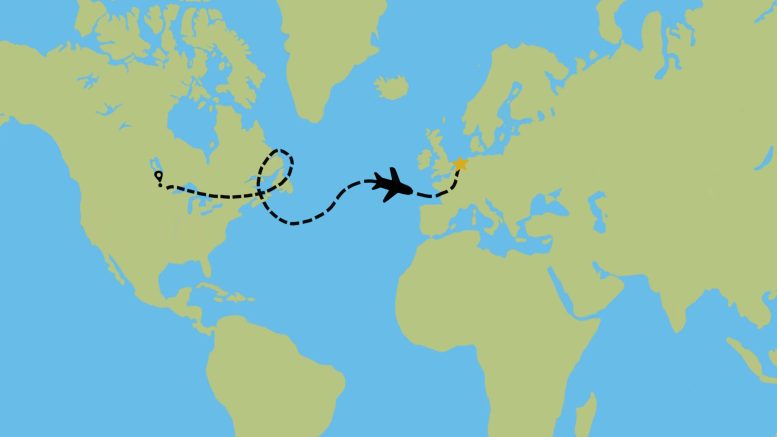In late April 2022, I submitted a last-minute application to study abroad. Today, I write from my dorm room desk in Belgium.
I was longing for a change of environment as I became burnt out from the six-month-long Winnipeg winter. In a “what’s the worst that can happen?” Hail Mary attempt, I landed the opportunity to study here at Ghent University.
Not much thought went into my decision to apply. Speaking candidly, a mere glance and scroll on Google Images was the only contributing factor to my location preferences: Melbourne, Australia, Nijmegen, Netherlands and my actual destination of Ghent, Belgium.
Wrapped in gothic cathedrals, tied with a bow of canals and townhouses, Ghent is a gift for everyone to enjoy.
The city and culture come with certain differences compared to Canada. Ghent’s rapid development occurred in the 12th century, a time when urban designers didn’t account for the invention of combustion engine cars. The narrow streets and infrastructure density contribute to one of the city’s greatest characteristics — people bike everywhere, from campuses to nightclubs.
The structure of academics in Belgium is a refreshing change. Each class at Ghent University has one three-hour lecture per week, giving students sufficient preparation time.
Midterms do not exist in most classes. Your grade is determined largely by a final exam, and partially, in some classes, an undemanding group project and participation.
Rather than fill a discussion post with jargon and paraphrased textbook excerpts, participation here is focused on enhancing the student’s self-involvement, often in the form of finding news articles relating to in-class concepts.
As for the difficulty level, I may be an unreliable source for comparison. I not-so-wisely enrolled in three masters-level courses out of my five. The topics lured me in, and luckily my interest in the subject matter outweighs the intensive reading preparation.
Exchange is an excellent way to study subjects you otherwise wouldn’t, and from a different perspective. My personal favourite has been global energy politics. Given the ongoing Russian invasion of Ukraine, Europe has been battling an energy crisis, which is fascinating to learn about from Europeans themselves.
For those who care to indulge, I’d be remiss not to boast about the nightlife in Belgium. Ghent is a lively student city. Less than two blocks from my dormitory, there is a street spanning just under a kilometre crammed with clubs, late-night shops and bars.
The city is revered for its techno scene. Just last weekend, I attended Kompass, a techno club in a formerly abandoned warehouse that hosts DJs for an all-night party. The few times I’ve been, I was met by daylight as I left the events. Considering the proximity of neighbouring countries, exchange abroad offers the unique opportunity to travel on weekends. The broad train network and inexpensive flights enable cheap weekend escapades to coveted locations. Next week I’ll be visiting Lisbon, Portugal, and the week after, the southwest coast of Italy.
Mentioned among concerns regarding student exchange is going alone. I am here to disprove this rhetoric. I came knowing nobody, but within two weeks I had become friends with everyone on my floor.
While desiring a change of environment was the motivation for my choice to apply, there were other contributing factors. Fulfilling a master’s degree internationally is something I’ve long considered during my bachelor’s, and exchange is a temporary test drive of this possibility.
The application period for exchange during Winter 2024 closes April 30. Available locations span four continents. This time next year, you could be living in Germany, Spain, Australia, Japan or France to name a few.
The application involves an essay and the submission of two reference letters. The essay, as I interpreted, is an opportunity to show who you are, not an evaluation of your intelligence or vocabulary. It involves a response to three prompt questions, such as explaining a previous cross-cultural experience.
I wrote about the underwhelming Parisian public bathrooms — a hole drilled through the concrete ground. A rather liberal use of the word “urinal.”
This was not my most luxurious experience, but a way to show how I experience cultural differences of all kinds.
While it may be daunting, I would urge all to apply.
For more information, visit the student exchange program page on the university’s website, https://umanitoba.ca/international/student-exchange-program.


